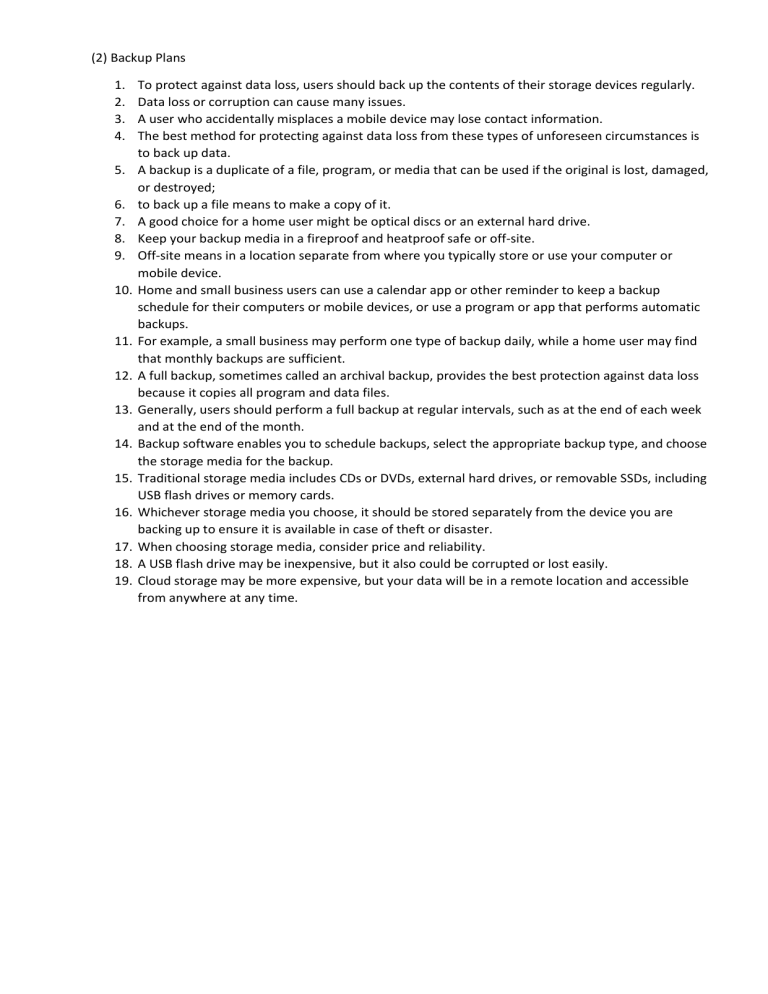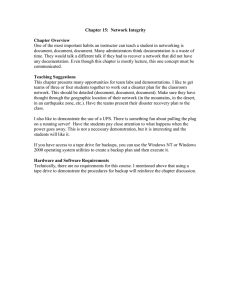
(2) Backup Plans 1. 2. 3. 4. 5. 6. 7. 8. 9. 10. 11. 12. 13. 14. 15. 16. 17. 18. 19. To protect against data loss, users should back up the contents of their storage devices regularly. Data loss or corruption can cause many issues. A user who accidentally misplaces a mobile device may lose contact information. The best method for protecting against data loss from these types of unforeseen circumstances is to back up data. A backup is a duplicate of a file, program, or media that can be used if the original is lost, damaged, or destroyed; to back up a file means to make a copy of it. A good choice for a home user might be optical discs or an external hard drive. Keep your backup media in a fireproof and heatproof safe or off-site. Off-site means in a location separate from where you typically store or use your computer or mobile device. Home and small business users can use a calendar app or other reminder to keep a backup schedule for their computers or mobile devices, or use a program or app that performs automatic backups. For example, a small business may perform one type of backup daily, while a home user may find that monthly backups are sufficient. A full backup, sometimes called an archival backup, provides the best protection against data loss because it copies all program and data files. Generally, users should perform a full backup at regular intervals, such as at the end of each week and at the end of the month. Backup software enables you to schedule backups, select the appropriate backup type, and choose the storage media for the backup. Traditional storage media includes CDs or DVDs, external hard drives, or removable SSDs, including USB flash drives or memory cards. Whichever storage media you choose, it should be stored separately from the device you are backing up to ensure it is available in case of theft or disaster. When choosing storage media, consider price and reliability. A USB flash drive may be inexpensive, but it also could be corrupted or lost easily. Cloud storage may be more expensive, but your data will be in a remote location and accessible from anywhere at any time.
